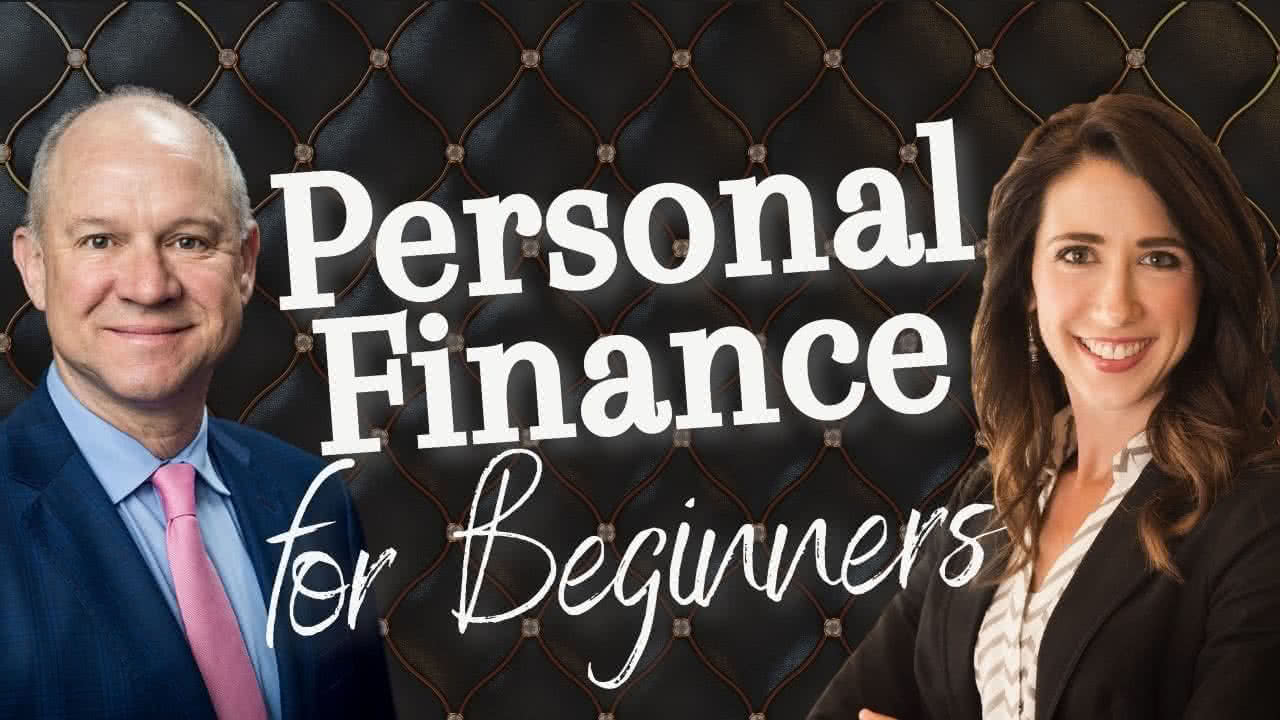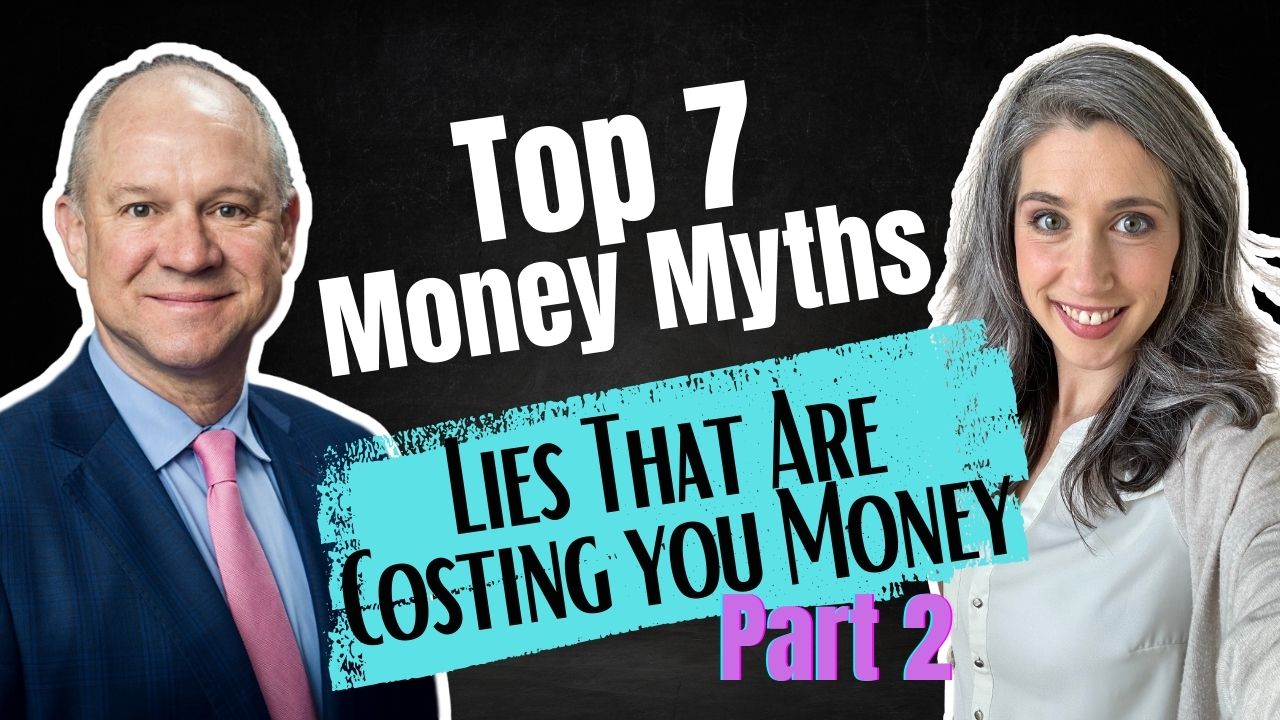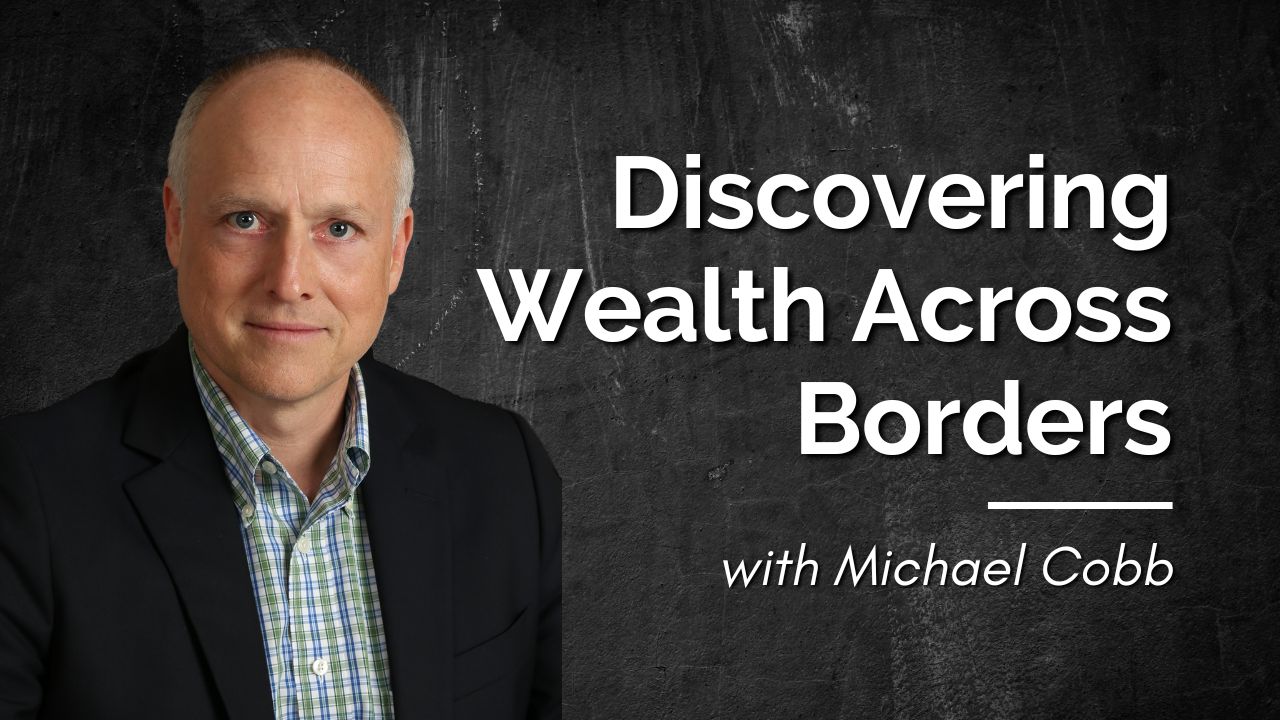
Personal Finance for Beginners
Here’s a listener question about personal finance for beginners: “What is the foundation or the starting point of wealth building? What are the core things I would want in place to start building wealth?”
You might be asking the same question. Do you have savings you want to do something with? Are you wondering if you are making the best personal finance decisions? Is it time to talk with a financial advisor? What do you need to know to figure out if the plan you create is going to be best for you?
Many people with great money habits realize that it’s time to do some planning when they have a stash of savings. Should you invest? In the stock market? Which stocks? With which company? How much risk should you take? How do you track your performance? Will your plan get you closer to financial freedom?
Let’s talk about the 10 things you want to have in place in your personal finance, to make sure you’re headed in the right direction with a plan you feel good about. Tune in now!
Podcast: Play in new window | Download (Duration: 1:11:15 — 81.5MB)
Subscribe: Apple Podcasts | Spotify | Android | Pandora | RSS | More
Table of contents
What is Wealth?
[8:58] Bruce: “The first thing I would say is that you really have to decide what your definition of wealth is for you.”
Bruce elaborates by sharing how, when asked about his Net Worth, he had to unpack the statement. Because typically, Net Worth is someone’s “pile of money.” It’s the culmination of their assets against their liabilities. To some, this may be the most important financial marker. However, Bruce and his wife decided that they valued cash flow more than a pile of money. So for them, Net Worth doesn’t necessarily scratch the surface of what they can do with their money.
Ways to Define Wealth
There are three fundamental ways people define wealth, which may help you get clearer on your own personal definition of wealth. Net Worth is the first definition, which is viewing your finances like a balance sheet.
Another way to define wealth is to consider not just your cash flow, but how that cash flow represents your wealth potential. This is more abstract, but consider it for a moment. Say you have $400,000 of cash flow. This is a fraction, or percentage, of your total wealth potential. That total wealth potential represents what your cash flow would be if you saved that money in an account earning, say, 4%. That would make your wealth potential $10 million. If you reverse engineer this, you could theoretically live off of 4% of that same $10 million, which would be the $400,000.
Finally, many people today consider their time to be their wealth. So this may not be represented by a certain dollar figure, but by how much control you have over your time. Many people today choose to be entrepreneurs for this reason or work in the “gig economy,” so that they have more time.
The point is not that there is one ideal of wealth, but that you can reach a point on your journey where you feel as though you are wealthy. So, you must define wealth for yourself. Your definition of wealth may include some combination of these aspects or other ones entirely.
Other Ways to Think About Wealth
In the book “Complete Family Wealth,” the authors define wealth as a family flourishing. They pose the idea that if you’re not happy, healthy, well-connected, and in control (among other things) then you are not truly wealthy. Wealth is not simply about money, but about whether you are living the life you wish to live.
Defining wealth for yourself takes on a new meaning when you look at it from this perspective because you’re forced to consider your “why.” Why do you want wealth? What is the purpose of your money? What does it mean for your family to flourish? This encourages you to involve your family in your wealth journey.
When you think about your financial goals, in the context of your family’s flourishing, you can start thinking in a more flexible way.
What is Financial Planning?
Once you’ve defined wealth, and you’ve accumulated savings, you may be at the point where you’re ready to consider financial planning. Financial planning, by definition, is taking stock of your current financial situation and your goals for the future, then creating a strategy to get there.
A good financial plan is comprehensive and includes considerations such as:
- Liquidity
- Rate of return
- Risk exposure
- Cash flow
- Savings for a variety of events
- How much control do you have?
- Tax liability
- Inflation
- When you want to access certain funds (like college or retirement)
The Guesswork of Personal Finance
A lot of typical financial planning is guesswork, unfortunately. There are a lot of things that you cannot predict in this life. Economic crises, inflation rates, tax rates, and much more are just the beginning of events that can’t be predicted. And the problem with much of the typical financial advice out there is that it encourages guesswork. People are advised to invest in stocks with high-risk exposure that can make things much more difficult in unexpected circumstances.
Using a vehicle like life insurance for the basis of your personal finances, on the other hand, can mitigate many of life’s negative side effects. Properly structured whole life insurance can help with liquidity, control, taxes, risk exposure, and the other major bullet points above.
Rather than simply seeking to accumulate a massive pile of money that can outlast life’s variables, what if you instead asked, “What do I have to work with today, and how can I do as much as possible?”
How Do You Optimize Your Financial Life?
There’s a process that we use when helping people to optimize their personal finances, that happens in 9 steps. These steps can serve as a point of reference for you as you get your own financial house in order.
The first three steps, or the foundation of this process, are about keeping as much of the cash that you make as possible. This doesn’t mean you have to scrimp and live on scraps, it simply requires you to be cognizant of your spending habits so that you can plug as many of the financial “leaks” as possible.
Once you can keep your money, you want to think about protecting that money. This protection is about having insurance in place, as well as estate plans, so that nothing unexpected can erode or steal your reserves.
The final three steps of this process are then about using the wealth that you’ve accumulated and protected to create more cash flow and wealth. At this stage, you’re looking to invest with growth in mind, taking control of your funds, and building out your legacy for your family.
Optimize Your Personal Finances: 8 Habits to Have in Place
If you’re interested in optimizing your finances and creating a good financial foundation, you’re in the right place. We’ve gathered a list of what we consider to be the fundamentals of personal finance so that you can get your house in order.
Consistent Savings
Consistent savings is one of the first things you can do to change your financial circumstances. Saving money is a habit that you have to cultivate, and it’s worth doing. Saving money can give you the freedom to partake in opportunities later, as well as cover emergencies.
When you earn money, you want to pay yourself first. It’s wise to save money first, so you can then spend freely. If you struggle with saving, creating an automatic system can help, such as an automatic transfer, or direct deposit into your savings.
https://themoneyadvantage.com/how-to-save-like-the-wealthy/
Increase Your Savings
Once you’ve created a good savings habit, you want to work on strengthening your savings capability. It’s a good idea to think of percentages, rather than a dollar amount so that your savings can keep up with your earnings.
When you start out, for example, you may only save 10% of your income. As you’re able, increase what you can save by a few percentage points. The ideal target is usually somewhere between 10-30% savings, but wherever you can start is good. Even if you can only save one percent of your income to start.
Another way to increase your savings is to start plugging your financial leaks. As you track where your cash is flowing, you may identify expenses that don’t align with your money principles. Eliminating this expense and saving that money instead is a perfect way of plugging financial leaks.
Save with Safety, Liquidity, and Growth in Mind
If you’re going to put in the work of saving money, you want to save your money in a place that is safe, liquid, and growth-oriented. Otherwise, you’re losing out on the efficiency of your savings.
Think about it. If your money isn’t safe, it isn’t going to be a good emergency fund. If your money isn’t liquid, it isn’t going to be a good opportunity fund. And if it’s not growing beyond what you contribute, it’s not going to keep up with inflation.
15-Minute Money
You’re always going to have the need for 15-minute money. This is money that you can access within 15-minutes–either by a short drive to the bank or in a fire-proof safe in your home. While you may have a liquid asset like whole life insurance, it isn’t quite 15-minute money.
So establishing some savings outside of your main savings account is important. That way you can spend money quickly, as needed or wanted. Just because you’re plugging financial leaks does not mean you’re scrimping in your day-to-day life.
6-12 Months of Reserve
An important savings milestone is to have 6-12 months of your expenses socked away. This includes your bills and other money you would reasonably need to live. Often, people don’t include luxuries like vacations in this figure. Instead, this is money that can help you make ends meet if you were to lose your job, or otherwise need to bridge an income gap.
Think of Savings as Emergency and Opportunity Fund
Saving money is critical, but knowing the purpose of your savings is just as important. For example, it may be tempting to think of your savings as fun money, or “just because” money. However, this may lead you to spend or use your savings more than you add to them.
Instead, consider the power of an emergency and opportunity fund. The money that you save is money that you’re putting away to grow and accumulate so that if you encounter an emergency, you don’t have to stress about how you’re going to handle it. Conversely, it acts as an opportunity account, so if you hear of a good investment, you’re poised to take the deal. The definition of “opportunity” can also be broad. You may get the chance to take the family vacation of a lifetime, in which case your savings can come in handy.
The point is that you get very clear on what you’re saving money for, and then leave that money alone, so it’s there when you need it.
Never Stop Saving
Once you start saving, it’s important to keep going! There will always be a need for savings in your life. As you grow your savings and your wealth, your opportunities and emergencies will rise to meet you. You’re going to want to do more, and have more, and even replenish what you’ve used.
Look Into Infinite Banking
Infinite banking with a whole life insurance policy is liquid, safe, and growth-oriented. Using your cash value, and the concept of infinite banking can help you create good discipline with your savings. The premium you pay for your insurance is your “savings,” because it directly affects your cash value access. The policy loan, and paying that loan back, ensures that you replenish your savings.
Invest with Knowledge and Control
Where you invest can make a huge difference in the composition of your wealth. For example, investing in stocks and bonds may, over time, lead to the growth of assets. If you define wealth as Net Worth, this may be valuable to you.
You can also, however, invest in assets like real estate or fossil fuels that create cash flow for you. Rather than growing a sum of money over time, you’re getting periodic earnings that can contribute to your “pile” of money. The difference is that this type of investment increases your income, which increases your savings and opportunities. This then leads to more opportunities, more income, and an ever-increasing cycle for you.
Ultimately, the difference is the risk exposure, and how much risk exposure you want. And make no mistake, investments involve risk–this is what differentiates them from savings.
Start Your Personal Finance Journey
[1:06:04] Rachel: “What I would say is to start with… your definition of wealth. How do you then optimize your financial life and do the most with the dollars that you have, save as much of that as possible, invest in what you know and control, never stop saving, and build this system in your financial life based on these fundamentals so that you can get closer to time and money freedom?”
Book A Strategy Call
Do you want to coordinate your finances so that everything works together to improve your life today, accelerate time and money freedom, and leave the greatest legacy? We can help! Book an Introductory Call with our team today at https://themoneyadvantage.com/calendar/ and find out how Privatized Banking, alternative investments, or cash flow strategies can help you accomplish your goals better and faster. That being said, if you want to find out more about how Privatized Banking gives you the most safety, liquidity, and growth… plus boosts your investment returns, and guarantees a legacy, go to https://privatizedbankingsecrets.com/freeguide to learn more.
Becoming Your Own Banker, Part 27: 7 Money Myths that are Costing You, Continued
Is what you think about money actually true? Is it helping or hurting you? Moving you forward and expanding your influence, or limiting you and your potential? If you joined us last week, you know that in true Bruce and Rachel fashion, we only covered half of our intended conversation, so we’re back to reveal…
Read MoreDiscover Wealth Across Borders -Michael Cobb
It is time to discover wealth across borders. Have you ever wondered what it’s like to invest internationally, live as an expat, or find a balance between work and play while enjoying life abroad? In a fascinating episode of our podcast, we sat down with Michael Cobb, a renowned figure in residential resort development and…
Read More


